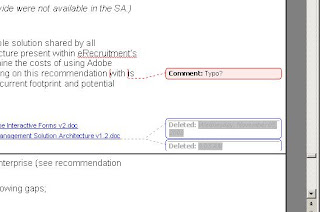During this weeks task we had a look at a number of sites / references that set the philosophical foundation for OER. The sites we visited include;
From my readings of these sites the following things stood out for me most.
During the age of
Enlightenment people began to recognize that they had the freedom to use one's own intelligence. This really sums up this time in history. It's hard to believe that at times in our history we didn't realize we had such power. The frightening part is that in some parts of the world there are people who still haven't caught on to this or are so oppressed that they don't have the freedom.
When it comes to the
Shoulders of Giants I really like the quote
If I have seen a little further it is by standing on the shoulders of Giants
This ties so many things together, it is the acknowledgment that whatever we do, we draw on the past and by drawing on the past we can see further to the future.
The
Library Movement is an essential part of having an educated and literate population. Having free access to books and the support in how to use the books raises us all up. And having ways to further the library movement will increase the global populations ability to enter into the dialog required to increase our shared abilities to be good stewards of the planet.
As I read further I found this description in the
Popular Education reading;
Popular Education may be defined as an educational technique designed to raise the consciousness of its participants and allow them to become more aware of how an individual's personal experiences are connected to larger societal problems. Participants are empowered to act to effect change on the problems that affect them.
I like this a lot for it really connects individuals to the larger and implies a responsibility to effect change. This is what I consider a theme behind OER and the larger open movement... Empowering people to act!
Gosh, with this definition of
Folk High School I see it as the definition of a
Personal Learning Environment;
The character of folk high schools differs from country to country, but usually such institutions have the following common features:
- A large variety of subjects
- No final exams
- Focus on self-development
- Pedagogical freedom
Last, and certainly not least, we had the reading of the
Free Software Movement (FSM). This section can get into some heady thoughts and as I drilled down into some of the supporting links I got the feeling that this chapter is far from done. I mean when I read about the Library Movement and the Age of Enlightenment, I see these items as historically complete, they still influence our lives and the cities we live. But the Free Software Movement isn't done, it isn't historically complete, it still has some change and "maturing" to do. Nonetheless, this movement is having a big influence on much of what is going on... When I consider that Microsoft (IMHO, the farthest away from FSM) engaging
a collaboration with eclipse then I realize that the FSM is having an influence and that fundamental changes to the FSM are still afoot.
ConclusionWhen I consider all these writings, and I consider the trajectory they have created I really like the future that I see. It seems to me that we are heading toward a place where
the world is flat and people are engaged in adding knowledge to the collective of people on the planet. And whether that addition is for self or other it doesn't matter cause the tools and approaches we use benefit us all...



